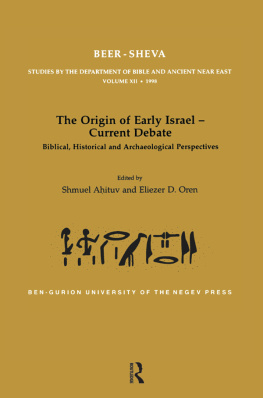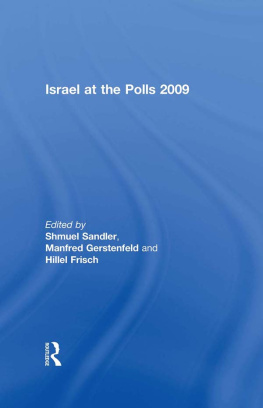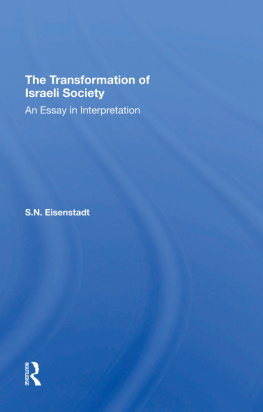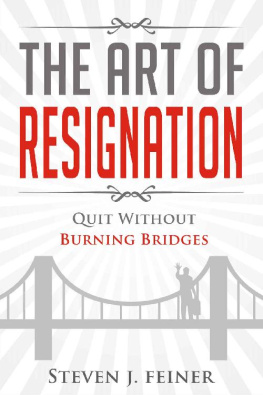Feiner Shmuel - The Jewish Enlightenment
Here you can read online Feiner Shmuel - The Jewish Enlightenment full text of the book (entire story) in english for free. Download pdf and epub, get meaning, cover and reviews about this ebook. year: 2011;2004, publisher: University of Pennsylvania Press, genre: Religion. Description of the work, (preface) as well as reviews are available. Best literature library LitArk.com created for fans of good reading and offers a wide selection of genres:
Romance novel
Science fiction
Adventure
Detective
Science
History
Home and family
Prose
Art
Politics
Computer
Non-fiction
Religion
Business
Children
Humor
Choose a favorite category and find really read worthwhile books. Enjoy immersion in the world of imagination, feel the emotions of the characters or learn something new for yourself, make an fascinating discovery.

- Book:The Jewish Enlightenment
- Author:
- Publisher:University of Pennsylvania Press
- Genre:
- Year:2011;2004
- Rating:4 / 5
- Favourites:Add to favourites
- Your mark:
- 80
- 1
- 2
- 3
- 4
- 5
The Jewish Enlightenment: summary, description and annotation
We offer to read an annotation, description, summary or preface (depends on what the author of the book "The Jewish Enlightenment" wrote himself). If you haven't found the necessary information about the book — write in the comments, we will try to find it.
The Jewish Enlightenment — read online for free the complete book (whole text) full work
Below is the text of the book, divided by pages. System saving the place of the last page read, allows you to conveniently read the book "The Jewish Enlightenment" online for free, without having to search again every time where you left off. Put a bookmark, and you can go to the page where you finished reading at any time.
Font size:
Interval:
Bookmark:
The Jewish Enlightenment
JEWISH CULTURE AND CONTEXTS
Published in association with the Center for Advanced Judaic Studies
of the University of Pennsylvania
David B. Ruderman, Series Editor
Advisory Board
Richard I. Cohen
Moshe Idel
Deborah Dash Moore
Ada Rapoport-Albert
David Stern
A complete list of books in the series is available from the publisher.
Shmuel Feiner
Translated by Chaya Naor

Publication of this book was made possible by a grant from the Lucius N. Littauer Foundation. Originally published as Maapechat ha-neorut, tenuat ha-Haskalah ha-Yehudit ba-mea ha-shmune esre
Copyright2002 The Zalman Shazar Center for Jewish History, Jerusalem
English text copyright2004 University of Pennsylvania Press
All rights reserved
Printed in the Unites States of America on acid-free paper
10 9 8 7 6 5 4 3 2 1
Published by
University of Pennsylvania Press
Philadelphia, Pennsylvania 19104-4011
Library of Congress Cataloging-in-Publication Data
Feiner, Shmuel.
[Mahpekhat ha-neorut. English]
The Jewish enlightenment / Shmuel Feiner ; translated by Chaya Naor.
p. cm. Jewish culture and contexts
Includes bibliographical references and index.
ISBN 0-8122-3755-2 (cloth. : alk. paper)
1. JewsIntellectual life18th century. 2. HaskalahHistory18th century. 3. Jewish learning and scholarshipHistory18th century. I. Title. II. Series DS113 .F4413 2003
296.09409033dc22 | 2003061057 |
For my wife, Rivka
The historian of Jewish modernization is faced with the formidable challenge of recreating in all its vitality the dramatic and convoluted historical development that gave birth to the contemporary Jewish world. One of the most fascinating and telling areas to explore regarding the aspirations of the Jews to drastically alter their values, modes of thought, and collective future is that of the elite of maskilim (enlightened Jews). This book is devoted to the history of the eighteenth-century Haskalah (Enlightenment) movement, weaving it into the broad and prolonged story of the changes that affected the Jewish people in the modern era. It provides a wide-scope reconstruction of the historical development and its ideas, and describes the public storms and the initial shocks that attended modernization.
The book opens in the early eighteenth century, with the story of several young men in European Ashkenazi society, who embarked on a conscious, deliberate course to change their cultural environment. They were motivated by a sense of intellectual inferiority, as well as by the strong desire to partake of the domains of knowledge of a cultural renaissancethe redemption of science and philosophythe entrance to which had been denied them by those holding the keys to the traditional library. In relation to the state of knowledge and those who monopolized it, this was a subversive trend that began to break new ground for an alternative route. In the last quarter of the century, over a period of twenty years (17781797), this cultural trend crystallized into the Haskalah movement. With the intensification of the maskilims revolutionary demands for an autonomous status and the right to speak out on current issues and to shape culture, the critical and modernist character of the Haskalah became clear. As soon as it did, the guardians of the existing order sounded an alarm, and an inevitable struggle ensued between the two competing elitesthe rabbinical-traditional elite and the innovative maskilic elite with its liberal worldview. The front lines of the Jewish culture war, then, were already drawn. The unity of the pre-modern Jewish society, at least in the minds of its members, was shattered once and for all. In the history of Jewish culture, the modern era opened, marked by controversies, conflicts and schisms.
When I entered the field of historical research, I was intrigued by the subject of the Haskalah movement. I realized that by attempting to fully understand it and all its ramifications, the scholar and student would gain a compass for navigating the complex map of the various paths of modernization. The Haskalah is a dynamic phenomenon of transition from tradition to modernity, and its bearers are the maskilim. Each and every one of them experienced, in his own way, a profound cultural conversion. Hence one must try to comprehend the mind and soul of the maskil, his qualms, his rebelliousness, and his special traditional-secular language. Generations of research have greatly enriched the picture of the eighteenth century. The accepted model, which placed the Haskalah in Germany and Moses Mendelssohn at the epicenter of the changes of the modern era, has been undermined, since the formulation of other and different models of modernization, in which the movement is not seen as the agent of change, such as the model of the Sephardi diaspora in Western Europe, Port Jews in Italian Trieste, or British Jewry.
My intent in this book is to show that, despite this, the value of the Haskalah should not be underestimated. On the contrary, the enlightenment movement led by the maskilim in Europe represented the conscious process of modernization and signified the point of departure of the major trends in intellectual history and in the history of the Jewish public sphere from the eighteenth century and thereafter. In my previous book, Haskalah and History, I attempted to prove that the ideology of the Haskalah was responsible for a series of manipulations of the past in all of the movements metamorphoses, in particular in nineteenth-century Eastern Europe. That book centered on one of the most influential inventions of the Haskalahthe modern age in Jewish culture. The historical space of the present book is confined to the eighteenth century. It describes in detailand I hope with the sensitivity it meritsthe process in which the modern and secular intellectual elite came into being.
I was faced with three main tasks in writing this book. The first was to uncover new historical sources that would enable me to paint a complete picture of the Haskalah movement. By examining letters, contemporary newspapers, documentary material spread throughout the issues of Hameasef, unknown manuscripts, neglected figures, and forgotten books, I was able to present as full a picture as possible, and on more than one occasion to observe the maskilim from a variety of vantage points: through their self-consciousness and their experiential worlds, through the eyes of their adversaries and through the testimony of observers outside of Jewish society.
My second task was to reinterpret the Haskalah movement and to explain its historical significance. To a large extent, I was inspired by the insights offered by the recent research on the European Enlightenment and was helped by freeing myself of the perception of the Haskalah as a movement of German Jewry only. I felt it was particularly important to properly present the role played by Mendelssohn, who had been unjustly accorded the status of the father or the founder of the Haskalah; to connect the history of ideas and the social history of the Enlightenment; and to avoid linking the Haskalah to an analysis of political and social phenomena, such as emancipation, religious reform, and assimilation.
Next pageFont size:
Interval:
Bookmark:
Similar books «The Jewish Enlightenment»
Look at similar books to The Jewish Enlightenment. We have selected literature similar in name and meaning in the hope of providing readers with more options to find new, interesting, not yet read works.
Discussion, reviews of the book The Jewish Enlightenment and just readers' own opinions. Leave your comments, write what you think about the work, its meaning or the main characters. Specify what exactly you liked and what you didn't like, and why you think so.







